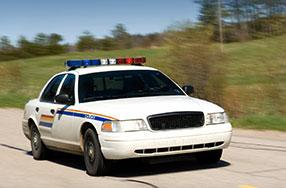Rules of the Road
In Washington, all drivers—whether residents of Washington or out-of-state travelers—are required to abide by Washington State traffic laws. Washington’s rules of the road are set forth in the Revised Code of Washington at RCW 46.61.

The rules of the road are intended to facilitate the safe and efficient flow of traffic. In our experience, the majority of crashes occur because someone failed to follow traffic laws. Often times, police officers will issue citations for violation of traffic laws. However, whether or not the police issue a traffic ticket is not, in and of itself, proof that a violation occurred.
Some common traffic law violations that result in car crash injuries and/or death include, but are not limited to:
- Failure to obey traffic signs, signals, and road markings (see RCW 46.61.050 through RCW 46.61.085)
- Unsafely overtaking and passing other vehicles (see RCW 46.61.100 through RCW 46.61.165)
- Following too closely (see RCW 46.61.145)
- Failure to yield to the right-of-way (see RCW 46.61.180 through RCW 46.61.220)
- Special stops at railway crossings, crosswalks, alleys, for school buses, and other unique stops (see RCW 46.61.290 through RCW 46.61.385)
- Speeding (see RCW 46.61.400 through RCW 46.61.480)
- Reckless driving and DUI (see RCW 46.61.500 through RCW 46.61.540, RCW 46.61.745, and RCW 46.61.790)
- Unsafe stopping, standing, and parking (see RCW 46.61.560 through RCW 46.61.590)
- Failure to yield to pedestrians (see RCW 46.61.230 through RCW 46.61.275)
- Unsafe backing (see RCW 46.61.605)
- Unsecured loads (see RCW 46.61.655)
- Cell phone use while driving (see RCW 46.61.667 and RCW 46.61.668)
- Failure to wear a seat belt (see RCW 46.61.688)
When asserting a claim for damages arising from a car crash in Washington, violation of traffic safety laws is evidence of negligence, but not necessarily proof of negligence. See RCW 5.40.050. Some states have a legal concept called “negligence per se,” under which proving violation of a traffic law is in and of itself proof of negligence. However, the Washington State legislature abolished this rule pursuant to RCW 5.40.050, under which the claimant is allowed to present evidence that the defendant violated traffic laws, but despite the violation, the judge or jury may still find that the defendant was not negligent. Although proving a violation of a statute is not necessarily proof of negligence, in practice statutory violations are very strong evidence of negligence.
A knowledgeable personal injury attorney will be able to identify the various ways the at-fault driver violated rules of the road, and will use that information to prove negligence. Even if the police ticketed the other driver for violating one particular traffic law, other traffic laws may also have been broken. Furthermore, sometimes the police either aren’t called to the scene, or don’t issue any citations. Whether or not a person violated the law is not determined by whether the police issue a ticket.
Similarly, even if you were ticketed as a result of a crash, you may still be entitled to recovery from the other driver. To illustrate, if both parties caused the crash, responsibility is apportioned by the percentage of fault attributable to each party. This concept is called “contributory negligence.” As another example, if you were driving 30 m.p.h. in a 25 m.p.h. zone, and were involved in a crash with someone who ran a red light, you might receive a ticket for speeding. However, that would not be a bar to your claim against the driver who ran the red light. In addition, sometimes the police make mistakes and issue tickets where no violation occurred.







